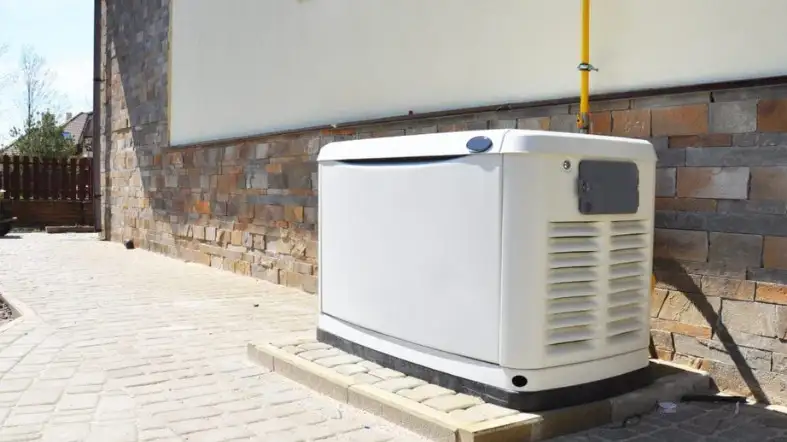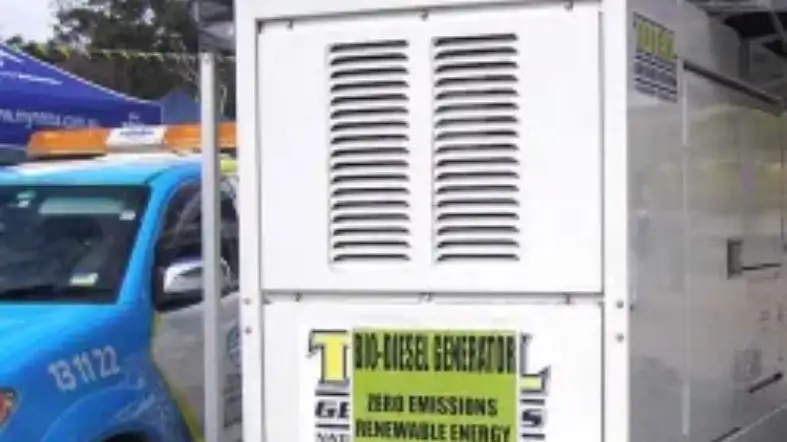Installing a whole-house generator can give homeowners peace of mind knowing their home will have power even during major outages. But these major investments also raise questions about potential tax deductions.
Determining is a whole-house generator tax deductible hinges on several factors.
In this article, we’ll explore the criteria that allow homeowners to qualify whole house generators as tax deductible, outline what expenses you can write off, and provide tips to maximize deductions for this home upgrade.

Is A Whole House Generator Tax Deductible?
A whole house generator can potentially be tax deductible, but eligibility depends on several factors. Using it for a home office or business purpose increases deductibility, as does installing it primarily for medical needs. To qualify, homeowners should consult a tax professional.
Way Is Generator Tax Deductible?
There are three ways that a generator can be tax deductible. Below we will explain how each of these works:
Medical Expenses

A generator may be tax deductible if it is used for medical purposes.
This includes individuals who require a power source for life-sustaining medical equipment or those with conditions that extreme temperatures could aggravate.
For example, if you need any of the following things in your household, you can install a standby generator and write off a portion of the cost:
- A medical device that requires electricity to operate, such as a nebulizer or oxygen concentrator.
- A refrigerator to store medications that must be kept cool.
- Freezer for storing medical supplies.
- Sump pump to remove water from a basement or crawlspace.
Talk to your doctor first if you consider using a generator for medical purposes. They can help you determine if a generator is right for you and fill out any necessary paperwork.
Capital Gains Tax

Capital gains taxes are extra fees assessed on your profits from sales of assets that aren’t a part of the inventory, such as land or a home.
These tax credits give you some relief when you sell a non-inventory asset.
Although you may not qualify for a tax credit when you install a generator, you may be able to take a deduction when you sell your home.
So, if you’ve added a generator since you bought your house, you could lower the taxes you pay on any sales profits.
If you’re planning on selling your home in the near future, check with your accountant to see if installing a standby generator could help lower your capital gains taxes.
You may be eligible for hundreds of dollars in tax credits by installing a generator.
Energy Tax Incentives

The government offers tax incentives for specific home improvements that make your house more energy-efficient.
These tax credits are usually available for a limited time, and the amount changes depending on the type of improvement made.
Installing a generator may help you save money on your electric bill.
But it won’t qualify you for energy-efficiency tax credits. However, if you install other energy-efficient improvements simultaneously, you could be eligible for a credit.
For example, if you install solar panels and a generator, you may be able to receive credit for both.
Or, if you upgrade your insulation and windows at the same time as installing a generator, you could get credit for the insulation and windows.
It’s important to note that tax credits are different from tax deductions.
Tax deductions lower the amount of taxable income, while tax credits reduce the taxes you owe.
So, there you have it! These are three ways that a generator can be tax deductible.
If you’re considering installing a generator, we recommend talking to your accountant to see if you qualify for any tax breaks.
How Much Is The Generator Tax Credit?

The tax credit amount depends on the type and size of the generator you install.
The amount of the tax credit varies depending on the type of generator that is installed.
Here are the different types of generators and the corresponding tax credit amounts:
| Type of Generator | Tax Credit Amount | Upper Limit |
|---|---|---|
| Solar-powered generator | 30% of the cost | No upper limit |
| Wind-powered generator | 35% of the price | No upper limit |
| Geothermal heat pump | 25% of the price | No upper limit |
| Fuel cell property | 20% of the price | Up to $500 per .5 kilowatt of power capacity |
| Small wind turbine property | 25% of the cost | Up to $4,000 |
It is important to note that the tax credit applies only to residential properties, and the generator must be installed and in use in the taxpayer’s primary residence.
Documentation Required for Tax Deductions
If you are planning to claim a tax deduction for a whole-house generator, it is important to keep detailed records and receipts to support your claim.
Here are some of the documents you may need to provide:
Proof of purchase
You will need to provide a receipt or invoice that shows the cost of the generator and the date of purchase.
Certification Statement
To claim the tax credit, you will need to provide a certification statement from the manufacturer that states that the generator meets the requirements for the residential renewable energy tax credit.
Installation documents
You will need to provide documentation that shows that the generator was installed in your primary residence.
This could include a building permit, inspection report, or installation contract.
Proof of payment
You may need to provide documentation that shows that you paid for the generator, such as a canceled check or credit card statement.
Other documentation
Depending on your specific situation, you may need to provide additional documentation, such as proof of residency or proof of income.
FAQs if A Whole House Generator Tax is Deductible
Can You Get A Tax Deduction For A Generator?
A taxpayer may also qualify for the credit by purchasing a generator, claiming the credit, and not installing or utilizing it for any length of time, even during a power shutdown.
Keep in mind that the rules for claiming the generator tax credit are different for each type of deduction.
Is It Worth Getting A Whole House Generator?
Although whole house generators are expensive, they may be worthwhile if you work from home.
Also, a generator can be a lifesaver if you live in an area with frequent power outages. You can Discuss with a professional before making a final decision.
Is There A Tax Credit For Installing A Home Generator?
Besides the federal tax credit, some states also offer their own tax incentives for installing energy-efficient improvements.
So, when considering a generator, check with your accountant or tax advisor to see if you qualify for any credits.
Can You Claim A Tax Credit For A Generator At Your Business?
The CARES Act, which was signed into law in December and went into effect this month, allows critical businesses to deduct up to 100% of certain facility improvement expenses.
Non-residential structures, including hospitals and healthcare facilities as well as offices, warehouses, and factories, are most likely eligible.
Final Thoughts
A generator can be a great addition to your home and may also be eligible for a tax deduction.
You must talk to your accountant or tax advisor to see if you qualify for any credits.
Also, check with your state to see if they offer any additional tax incentives for installing a generator.
After reading this article, you have a better understanding of how a generator can be tax deductible.
